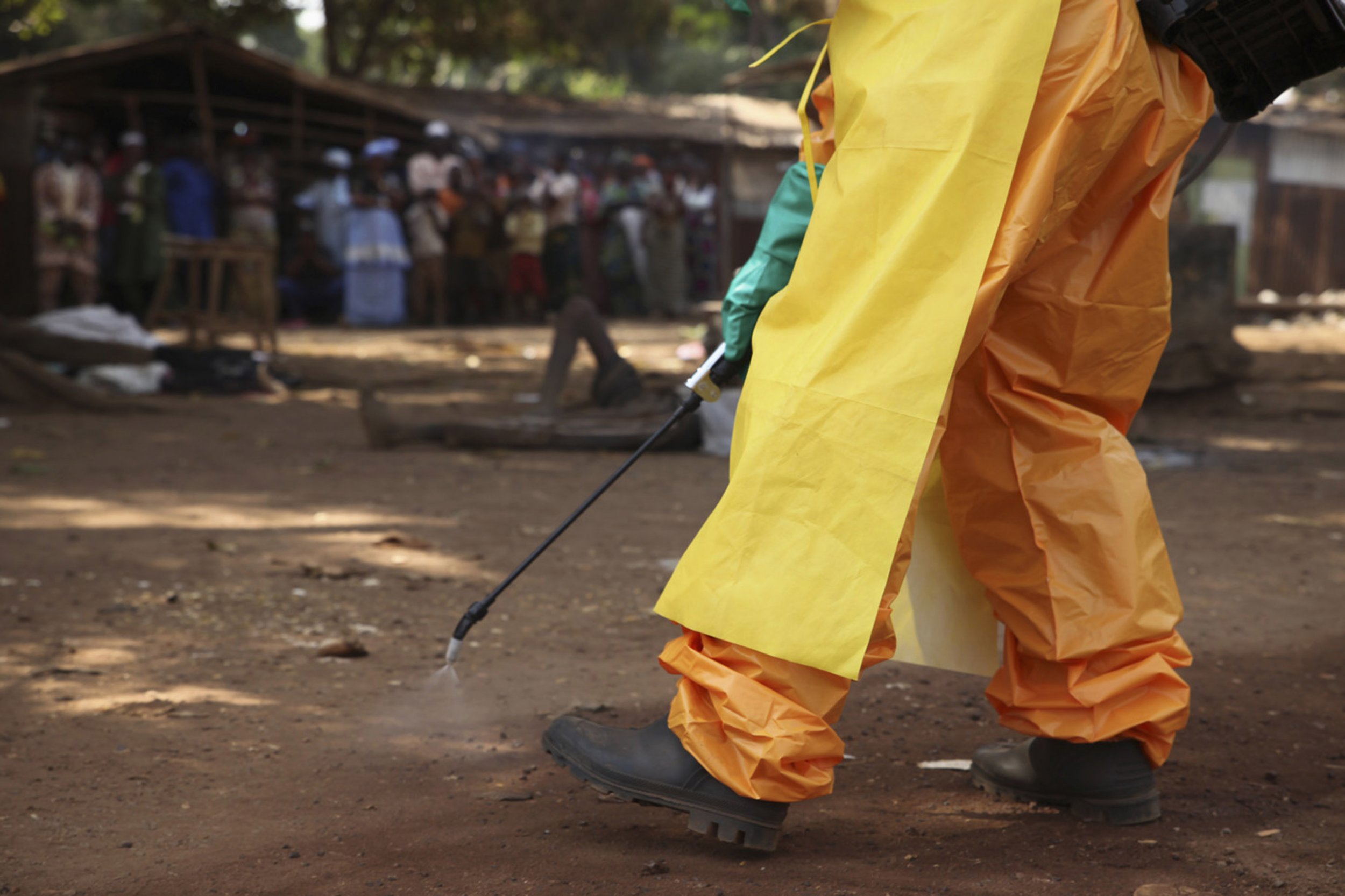
The Ebola virus launches an all-out barrage against the body, often killing victims within a week or two. It plays a nasty trick on the immune system, infiltrating cellular components normally used to sort and digest food and waste, known as endosomes and lysosomes. There, it's able to hide from most antibodies that the body produces. Within this space it undergoes a change in shape that allows it to unload its genetic material and take over the cell.
Researchers have now identified two antibodies from the blood of a survivor in West Africa that foils Ebola's hide-and-shift act. These antibodies inactivate all five strains of the virus, including the three that have caused disease outbreaks in humans. The antibodies work by preventing the virus from binding to a critical protein within endosomes known as NPC1. If the Ebola virus cannot bind to this receptor, then it cannot replicate and continue its spread.
As described in a study published May 18 in the journal Cell, researchers have shown that mice and ferrets given these antibodies after inoculation with each strain of Ebola virus were protected from infection.
These antibodies act like Trojan horses, tagging along with the virus into the endosome, says one of the study's senior authors, Kartik Chandran, with the Albert Einstein College of Medicine in the Bronx. Ebola's shape-shifting process is akin to an "undressing," where it removes proteins coating its exterior that allow it to evade the immune system. Once the virus changes shape, the antibodies bind to it, even more tightly than before its change.
Chandran says this is unique; most other antibodies studied haven't been able to attack it as effectively after the all important shape-shift, he says.
The anonymous person from whom the antibodies derive survived the 2013-2016 Ebola epidemic in West Africa that caused more than 11,000 deaths. The World Health Organization announced that as of May 15, an Ebola outbreak has begun in northern Democratic Republic of Congo and already caused three deaths and potentially infected 19.
"If the described antibody turns out to be protective in non-human primates this will certainly be a candidate for a prophylactic vaccine for humans which could be given…to health care personnel shortly before they are deployed to an Ebola virus outbreak," says Stephan Becker, an Ebola researcher at the University of Marburg who wasn't involved in the study. "This would be especially important if the exact Ebola virus species causing the outbreak is not known."
Chandran adds that he doesn't envision it being used as a vaccine, but as a therapeutic technique to be given to people who were likely recently exposed. These kind of antibodies last for a matter of weeks in the bloodstream, though they may be engineered to stick around longer. The scientists are currently planning trials in non-human primates and are collaborating with a company called Mapp Biopharmaceutical to hopefully commercial the antibodies in the future.
Uncommon Knowledge
Newsweek is committed to challenging conventional wisdom and finding connections in the search for common ground.
Newsweek is committed to challenging conventional wisdom and finding connections in the search for common ground.
About the writer
Douglas Main is a journalist who lives in New York City and whose writing has appeared in the New York ... Read more
To read how Newsweek uses AI as a newsroom tool, Click here.








